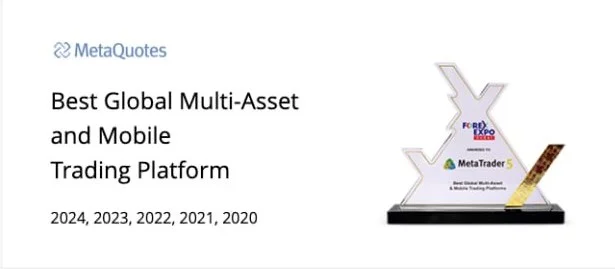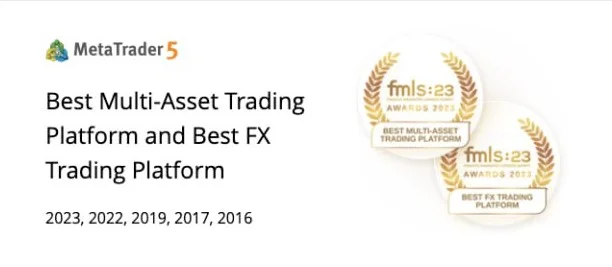Who are you trading with?
Is the forex broker a legitimate company? Can you trust it?
Unlike Batman in the story from the previous lesson, you’re not going to know who you are trading with. And even if you did, that doesn’t mean you should blindly trust them.
Do not trust Spider-Man. He stole my money. Feel free to skip his upcoming movie.
Even though it started as fun and games where Batman and Spider-Man were supposed to be making friendly bets on trying to guess where GBP/USD was headed, it didn’t end up so friendly. Batman ended up getting duped by a fellow superhero, who was supposedly a “good guy”.
If you’re not familiar with the story above, this means you haven’t read our earlier lesson on How Forex Brokers (Kinda) Work starring Batman and Spider-Man. It’s highly recommended that you read this lesson first.
Forex Brokers
In order to trade forex, you will need a trading account with a provider of online foreign exchange (FX) trading or CFD trading services, more commonly known as retail “forex brokers” or “CFD providers”.
When you open a trading account with this company, you will need to deposit money to the account so you can trade.
Are you sure you can trust this broker?

Unfortunately, not all brokers are honest and trustworthy.
A big issue with the retail forex trading industry is a lack of transparency and unclear regulatory structures with insufficient oversight.
Due to its decentralized and global nature, the forex market is less regulated than other financial markets making it more prone to fraud.
And with the rise of internet-based trading platforms since the early 2000s, forex trading has become even more accessible and popular among retail traders across the world.
This explosion of noob traders (“fresh meat”) creates more opportunities for dubious behavior by shady brokers like fraudulent schemes, order manipulation, refusal to pay out for wins, or preventing account holders from withdrawing their funds.
In the past, many forex brokers were unregulated, which means that these brokers were NOT operating under the supervision of a governing body whose role is supposed to protect traders from being fleeced. So if you are scammed, there’s no hope for any legal recourse.

Your money is gone.
Fast forward to today and while the retail forex industry has slowly become more regulated, shady brokers still exist who should not be in business.
This is why the most important first step is verifying the legitimacy of the forex broker you choose.
When you’re looking to trade forex, it’s important to identify brokers who are reputable and avoid the ones that are not.
You don’t want to end up being part of the unfortunate group of individual traders who fall prey to a forex scam.

In order to identify reputable brokers from shady ones, you need to do your homework before depositing a large amount of money with a broker.
The forex broker you choose is going to be your first critical decision as a new trader.
Why?
Because you’re going to be handing over money to this company!

So the first thing you need to make absolutely sure, especially BEFORE you make your first trade, is once you transfer funds to the broker…if you’ll also be able to withdraw those funds.
You might make the assumption that once your money is in your trading account that you’ll be able to trade with it and then withdraw it whenever you want to cash out your profits.
But don’t just assume this is true! VERIFY!
Never assume, always check.
You can be the most awesome trader in the world, but if your broker disappears with your money, then it doesn’t matter.

You’d just end up being the most awesome broke trader in the world.
If you want to stay awesome, but avoid being broke, then here are some important questions to consider before choosing a broker.
Is it a real company?
Is the forex broker a real company?
Don’t be fooled by a nicely designed website.

Make sure there’s an actual legally incorporated company behind that website.
Here are things to look for to verify that they are a real company:
- What is its formal business name?
- Where is it incorporated and registered to do business?
- How long has it been in business?
- Can you find anything on Google about the company?
- Have there been any recent press releases or articles about the company?
Where is it located?
Does the company have a physical office address?
Don’t be fooled by a listed address on their website. Make sure there’s a real office behind that address.
A simple way to check if the office is an actual office is to use Google Maps.
Enter the address in Google Maps and see what appears.

And to get a better view of the office, you can also use Google Earth.
Enter the address in Google Earth and see what appears.

Zoom in until you can see the building they’re in. Is it an actual office building? Or does it look suspicious?

If it looks like the building above, are you sure you really want to hand over your money with this broker?
If no building is present and instead, you’re seeing a warehouse on a tiny tropical island or even worse, an empty plot of land, you probably want to pass on this company.
Who runs the company?
Do you know who runs the company? Or is it a “ghost corporation” with no active employees?
Who are the principals of the company?
A principal is generally someone who holds a significant ownership stake in a company or has a formal title and ability to control the company’s activities.
For example, principals could be the founder (or co-founders), President, CEO, COO, CFO, other C-level officers, or any person or entity that owns 10% or more of the company.
Beware of “ownership-opaque” companies, where their true owners and/or company officers aren’t disclosed.
This lack of transparency might be due to the fact that it’s actually a criminal enterprise whose members wish to remain anonymous.

If you’re trusting a company with your funds, you should know the people who are in control of the company.
If something goes wrong, you’ll know who to hold accountable.
Can you contact the company?
Does the company provide multiple ways to contact them?
You want to make sure your broker is there when you need to ask a question or have a problem.
- Does it have a phone number?
- Does it have an email address?
- Does it have a live online chat?
- What are its customer support hours?
It’s not enough to see all three listed on their website. Just because it looks like there are multiple ways for you to get in touch with the broker doesn’t mean it’s true. Verify that they all actually work and it’s not just for show.
Call the phone number. Does somebody pick up quickly?
Send an email. How long does it take to receive a reply? (Automated replies don’t count.)
Start an online chat. Does it work? Or are you simply asked to send a message by filling out a form?
If the online chat does work, are you talking to a chatbot or an actual human?
What are their customer support hours? Is their support staff available 24 hours a day, 5 days a week?
You can also test how good their customer support is by opening a demo account. Once you’re logged in to their demo trading platform, send them a question using their support feature.
Since you’re a potential new customer who may open a live account, they should be responsive. If not, it should make you wonder how their support will be once you’re already a customer.

A reputable broker should have a dedicated support team that can answer your questions. In a live trading situation, phone access or live online chat is a must since an email reply may take days.
At the end of the day, you want to make sure that the broker will be there for YOU when you need them.
Is your money safe?
Do not rush into opening a live account or “real money” account without knowing how your funds are handled.
You need to ask the following questions:
- What bank do you use to store customer funds?
- Are customer funds held separately from the company’s bank account?

The forex broker should be using a reputable bank. Ask who they use. Would you trust your funds with an unknown bank?
Before you deposit any funds with a forex broker, make sure it uses segregated accounts.
A segregated account is a dedicated bank account where all its customers’ money is kept completely separate from the company funds.
This means that your money is kept entirely separate from the broker’s money.
The main reason for segregated accounts is to prevent the broker from using YOUR funds outside of your trading account.
If a forex broker does not segregate accounts, it will be able to use customers’ funds for operational expenses. And maybe an exotic sports car (or two) for the CEO?

Or it might just use all deposited funds to buy a boatload of bitcoin and disappear.
In the past, shady brokers have used their customers’ money for their own purposes, putting this money at unnecessary risk.
You do not want your broker to use your money for the wrong purposes. A segregated account protects your money against dishonest and fraudulent behavior from brokers.
Should a broker become bankrupt, it also ensures that customer funds are easily identified. In the event that the forex broker’s become insolvent, your money would not be affected.
Depending on the country, regulations state that segregated accounts can’t be used to pay creditors, and customer funds must be returned to the customers.
Imagine a broker’s money and its customers’ money all mixed together. If this was the case, companies to who your broker owes money could come after your money!
Having segregated accounts ensures that customer funds will be easily identified and returned in case of bankruptcy.
Segregated accounts between customer funds and a broker’s funds provide safety. If a broker does not use segregated funds, do not deposit your money with them.
Summary
In order to trade forex, you need to use the services of a retail forex broker. And since you’ll be depositing your hard-earned money, you need to DYOR and make sure the company is legit.
Let’s review the questions that you should consider:
- Is it a real company?
- Where is it located?
- Who runs the company?
- Can you contact the company?
- Is your money handled safely?
There is one last question that you should consider that’s crucial.


